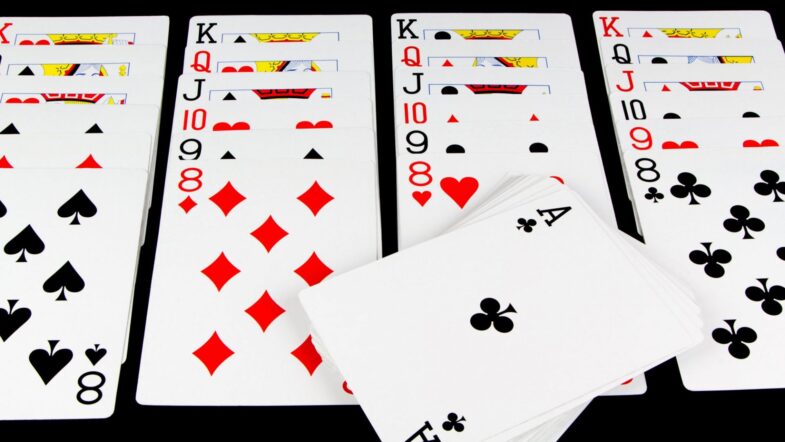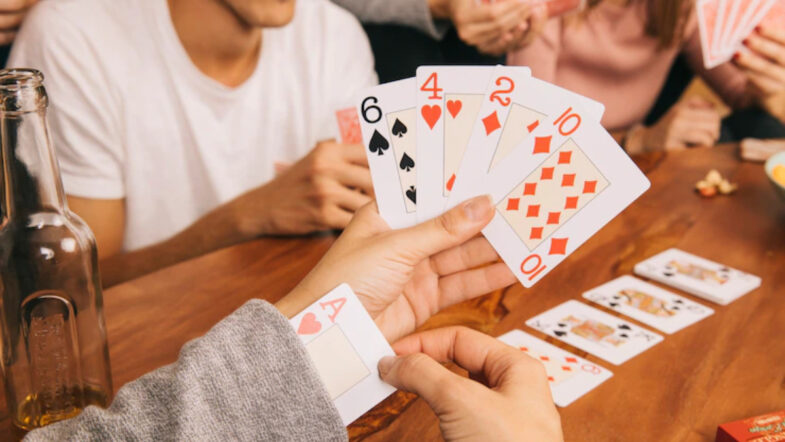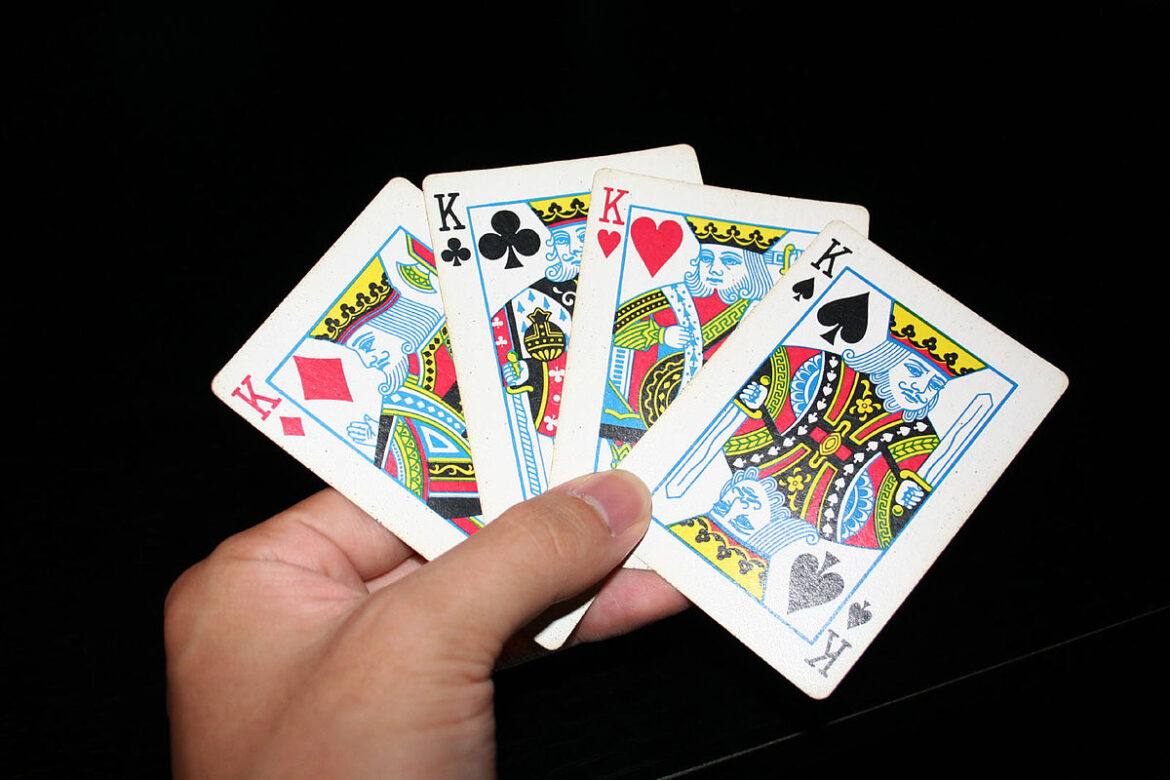People of all ages love card games because it is a great way to spend time with fun and relax. But in addition to their recreational features, card games can also improve cognitive functioning, including attention, focus, and strategic thinking. The latter one can be most important for adolescents because this skill will assist them well in the future. In this article, we’ll focus on Klondike Solitaire and how it can help in the development of strategic thinking.
Importance of Strategic Thinking

Source: inc.com
Adolescence is a period of life when people make a foundation for their further physical, emotional, and cognitive development. This stage also includes significant changes in problem-solving and decision-making, as well as analytical skills, reasoning, and long-term planning. Strategic thinking encompasses all these and a few more skills, such as reasoning and anticipating consequences, so it’s essential to cultivate it to get prepared to resolve life challenges.
Several activities can promote strategic thinking and planning, and card games are one of them. One commonly known game is Klondike Solitaire, and it also has benefits for cognitive functions. So, let’s review this game’s basic rules and how exactly to use it as an exercise for your brain and skills.
Rules and Strategic Nature of Klondike Solitaire
Klondike Solitaire is a popular game available on a number of websites, such as Solitaires. It is suitable for playing alone or with someone else, and it has clear rules and engaging features. The main goal of this game is to arrange 52 cards into four piles by suit. Every pile should also meet the ranking requirement, starting with an Ace and finishing with a King. To do so, you have to use both the tableau and a stockpile and make descending sequences of alternating colors.
So, how can this card game, which seems to be so simple and straightforward, be so beneficial for cognition? Below, let’s review it in detail.
Benefits of Solitaire and Other Card Games for Strategic Thinking

Source: inc.com
Every move in Klondike Solitaire impacts further gameplay. That is why you have to be attentive to the layout, analyze it, plan your next moves, and predict the outcomes. You have to know how to avoid dead ends and not to block essential cards. This comprehensive process refines strategic thinking abilities:
- Problem-solving. Adolescents learn to solve problems from easier ones to more complex challenges, and card games can be the first step on this path. Every Klondike game is a puzzle, and you can’t know for sure if it is winnable or not at the very beginning of the game. You try to apply different tactics and strategies to win the game. Therefore, adolescents learn to think critically, weigh the pros and cons of different moves in the tableau, try and analyze a variety of scenarios, and boost creative thinking in solving ordinary problems.
- Decision-making skills. Every move in Klondike Solitaire may come with advantages and drawbacks for the further game flow. So, it is important to evaluate each possible option, compare them, and choose the most suitable and promising one. The decision-making process is highly repetitive in Klondike, and to succeed, you have to make these choices quickly and correctly. On the other hand, the ability to face mistakes and their consequences is also developed when you play card games, and that’s our next point.
- Risk evaluation. Klondike and many other card games teach adolescents that every move has positive, negative, or neutral consequences, and it’s important to handle all of them healthily. Players learn to assess risks, face failures, aim for rewards, and improve their long-term vision. The skill of making informed decisions and taking or avoiding risks is valuable in every area of life.
- Flexibility and high adaptability. While Klondike has straightforward rules, there are multiple strategies you can use to win. Moreover, you can combine or modify them to achieve the goal with limited obstacles and setbacks. Adaptability, creativity, and readiness to face new aspects revealed unexpectedly are some of the best skills this card game can help with.
- Organization skills and planning. Klondike and other Solitaire variations are based on the development of strategy and thorough planning. When playing card games, adolescents learn to think several moves ahead, focus on the objectives along with the rules, and divide complex tasks into small manageable pieces. By achieving the goals step by step in an entertaining manner, they also learn to be consistent and grasp the concept of delayed gratification.
General Benefits of Card Games

Source: indiatvnews.com
Entertainment is only one aspect of card games, and in addition to that, this hobby improves decision-making, strategic thinking, and risk management in adolescents. Games like Klondike Solitaire are invaluable for cognitive development and improved adaptability because they require players to remember and modify strategies, use logical reasoning and analytics, weigh the pros and cons of every move, and deal with the consequences. All this is important when anticipating real-life situations.
When it comes to strategic thinking, card games develop it through several features. First, players should create long-term plans and pay attention to different areas of the game at once. Second, they have to be ready to adjust their strategy based on the ever-changing layout, when the new cards are revealed and impact the further game flow. Third, players learn to evaluate risks and be consistent in their moves as well as plan in advance. In fact, Solitaire serves as a controlled and safe environment to practice risk management and other essential skills.
Another valuable aspect is multiplayer games. Such games improve the adolescents’ ability to work in a team, collaborate, compete, face successes and failures, and negotiate. These games also help to advance communication, analyze other people’s behavior, and boost persuasion skills, among others.
Summing Up
Klondike Solitaire is one of the most popular card games, and its benefits for strategic thinking and other cognitive skills are well-known too. Adolescents can improve their decision-making abilities, planning, adaptability, logic, flexibility, and more during the game. The skills they get can be used in different areas of life and various situations. Moreover, Klondike is not the only game that can help with such personal development. There are many other variations, so everyone can find a suitable option.
